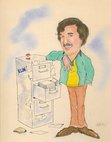Hey, let’s split some infinitives!
Here’s another thing your grade-school English teacher wants you to worry about: split infinitives.
 Photo by Mikhail Nilov on Pexels.com
Photo by Mikhail Nilov on Pexels.comSome people have no idea what a split infinitive is, and they are happy souls. But for the rest of us, let’s just remember that a split infinitive is NOT grammatically incorrect. It cropped up in 19th-century grammar textbooks as an “error,” but has been routinely ignored by professional writers ever since.
If you are dying to know what it is, here you go: an infinitive is a verb that has “to” before it, that’s all. Like “to be or not to be.” If Shakespeare wanted to drive an English teacher crazy, he would have written the phrase as “to be or to not be,” and he would have created a split infinitive. The adverb “not” is placed between “to” and “be,” splitting them, and to some people’s minds, the meaning of the sentence has been destroyed. But somehow, we manage to understand what the author is saying, even if that little adverb is intruding into the intimate embrace of “to” and “be.”
Why this was ever seen to be a problem is beyond me, because we routinely split other two-word verb phrases with “not” (and other adverbs), and the walls do not come crashing in. The future tense of “be” is “will be”; so if Hamlet commits suicide (which, by the way, is what he is contemplating in “to be or not to be”), he “will not be” alive. Why is there no outrage over splitting a future tense phrase? I suppose we could avoid splitting the verb phrase “will be” by saying, “he will be not alive,” but that seems decidedly awkward. Should we then, like Shakespeare, put “not” before the verb phrase, and say, “he not will be alive”? Of course not! But that is the very suggestion some English teachers use to correct split infinitives!
Let’s try a sentence that uses another adverb — “quickly” — to split the infinitive. “He advised us to quickly decide which road to take.” We could say, “He advised us to decide quickly which road to take,” and that would be fine, though possibly a little awkward in its phrasing. (Awkward phrasing seems to be of little concern to English teachers, though it is of great concern to writers.) Worse yet, some self-appointed grammarians insist that the most correct way is to put the adverb before the verb phrase, making it “He advised us quickly to decide which road to take,” which is not only awkward, but ambiguous, because we don’t know if the advising is being done quickly, or the deciding.
So feel free to split those infinitives, and if anyone challenges you on it, laugh in their face!
My next post will show how splitting some verb phrases with nouns (usually the object of the verb phrase) can and often does lead to ambiguity and awkward phrasing. So English teachers, listen up! This really is a split you want to avoid.



